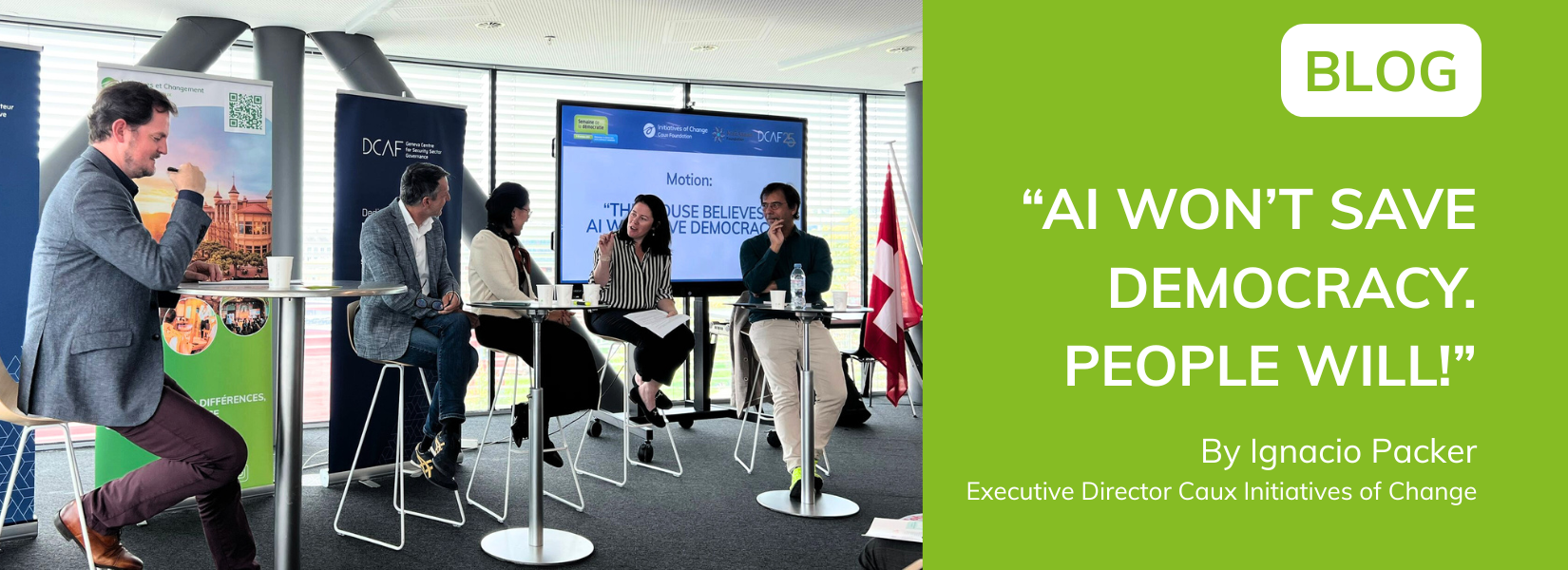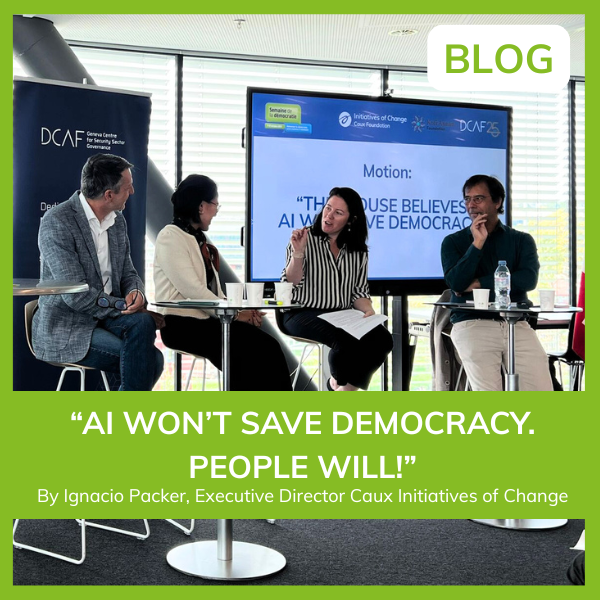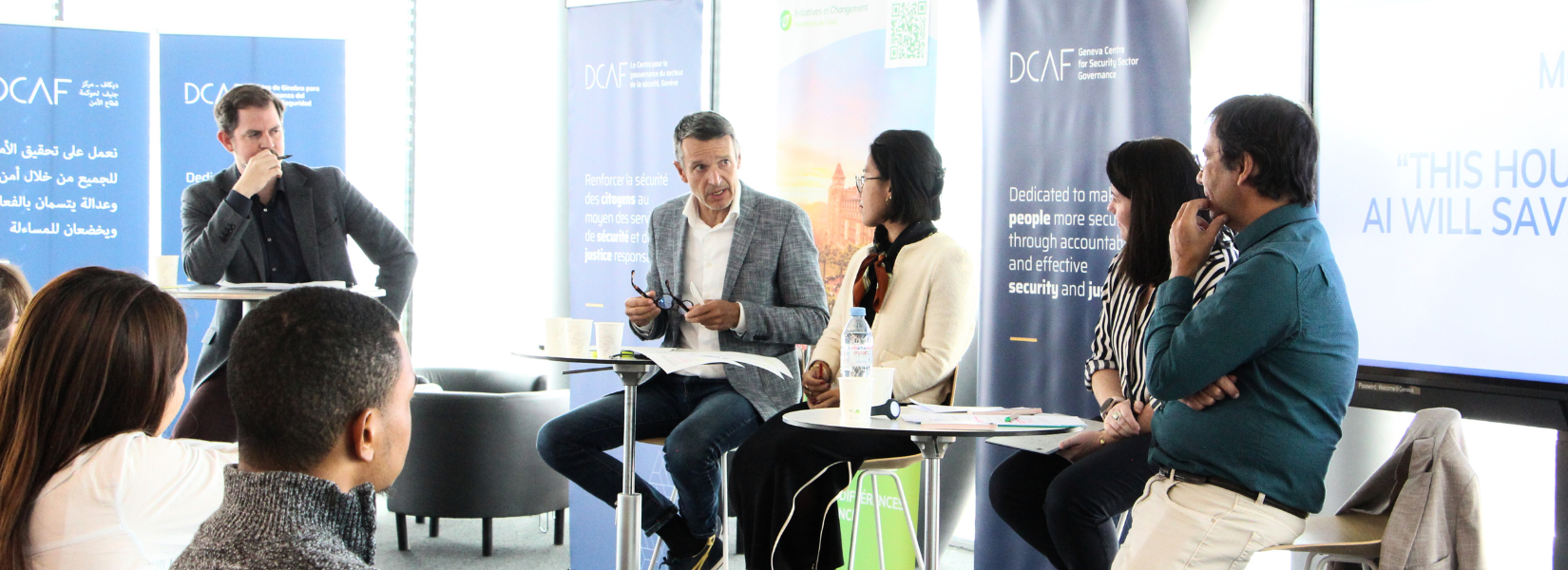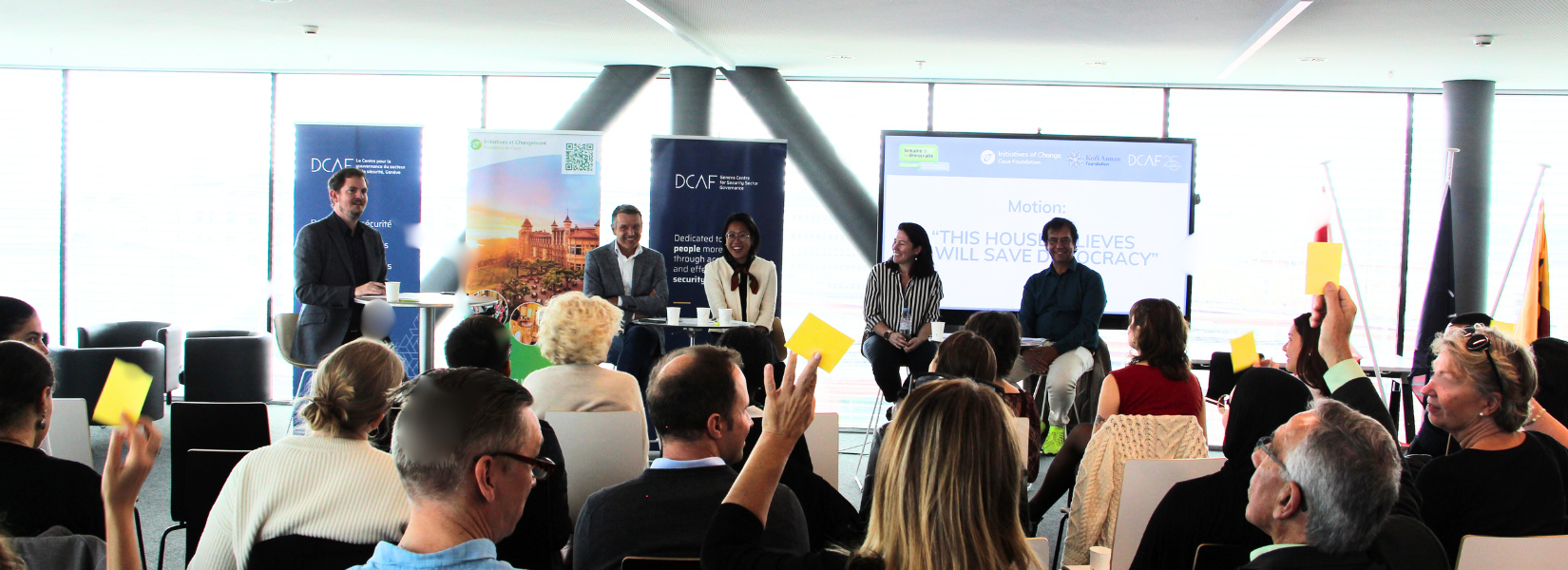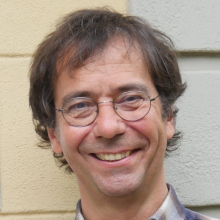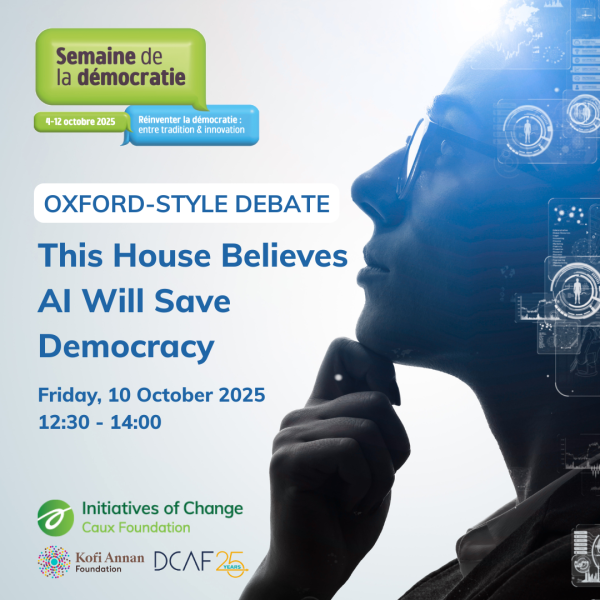"AI won’t save democracy. People will!"
A blog by Ignacio Packer, Executive Director Caux Initiatives of Change
13/10/2025
Stockholm, 13 October 2025
Last Friday at Geneva Democracy Week, we co-hosted an Oxford-style debate on the motion: “This house believes AI can save democracy.” It was inspiring, lively—and ultimately sobering. Because the truth is simple: AI will not save us. Believing it will is not just naïve—it’s dangerous.
At the Caux Palace, our centre for dialogue and trustbuilding above Montreux in Switzerland, we host conversations in a place built for listening. There, I see clearly what can protect democracy:
- Strong, enforceable rules that keep pace with rapidly evolving technology.
- Redesigned incentives—what we reward, promote, or punish—to align private and public interests.
- Investment in people—building the skills, habits, and courage needed for responsible participation.
I’m writing these lines from Stockholm, where the Inner Development Goals (IDG) Summit opens this week. While the Sustainable Development Goals (SDGs) set targets for the world, the IDGs focus on the inner capacities needed to reach them: empathy, critical thinking, courage, resilience.
These capacities matter now more than ever because AI can accelerate both democracy’s strengths and its risks.
The limitations of AI
AI centralizes power; democracy diffuses it. AI can scale manipulation; democracy depends on accountable persuasion.
Algorithms deliver speed where deliberation is needed, and hide decisions behind black boxes where transparency is essential. Social media offered a warning: we were promised greater connectivity, but the result was increased mistrust.
Better tools cannot replace better people.
Skills that sustain democracy
For decades, Initiatives of Change has worked “from the inside out,” cultivating integrity, empathy, courage, and practical collaboration. These inner capacities are the foundation on which rules, audits, and technology can function effectively.
Without them, AI amplifies our worst instincts: outrage over inquiry, shortcuts over responsibility, passivity over participation.
Some of the skills I try to practice personally:
- A learning mindset when answers feel too quick.
- Critical and systemic thinking when claims “sound right.”
- Empathy across difference to understand multiple perspectives.
- Co-creation when complexity exceeds any single expertise.
- Courage to speak truth when it is inconvenient or unpopular.
AI can assist, but it cannot grow these muscles. Democracy depends on humans growing them ourselves.
Testing ideas in public
During Geneva Democracy Week, we put these ideas to the test. At the Maison de la Paix, with the Kofi Annan Foundation, DCAF, Polisync, and EPFL, we debated: “AI is here, but will it be democracy’s saviour or its undoing?”
The conclusion was clear: technology alone cannot save democracy. People, institutions, and communities decide whether it strengthens or erodes it.
Strong AI governance is essential—but rules alone are not enough. Democracy is not a product to download; it is a practice to nurture—within ourselves, in our homes, across communities, and in institutions.
This is the ethos of the Caux Democracy Programme (2024–2027) and its annual forums, where diplomats, civil society leaders, youth, and artists practice listening across divides, honest debate, and shared responsibility—skills that no algorithm can replicate.
Recentering human agency
At the Caux Initiatives of Change Foundation, our vision is a democratic world where people act from responsibility and interdependence. In that world, AI is a transparent, accountable tool that serves human dignity. Today, AI often pulls us away from that vision. The solution is not to reject technology; it is to re-center human agency. For this we need to regulate AI with teeth, redesign incentives, and—most of all—invest in people!
AI will not save democracy. People will. Only citizens who are better trained, better connected, and better grounded can uphold the democratic values we hold dear. People first. Tools second. Then AI can be what it should be: useful.
Democracy can be what it must be: ours!
________________________________________________________________________________
Join the conversation
Stay tuned and join us in shaping the future of democracy. Sign up for our newsletter for updates and registration for the Caux Democracy Forum 2026 (22–26 June) and be part of a community practicing the skills, courage, and dialogue our democracies need.
SIGN UP FOR MORE INFORMATION
________________________________________________________________________________
Ignacio Packer is Executive Director of the Caux Initiatives of Change Foundation, a Swiss private charitable foundation with the mission to provide a safe and privileged space to inspire, equip and connect individuals, groups and organizations from around the globe to engage effectively and innovatively in the promotion of trust, ethical leadership, sustainable living and human security. Ignacio has over 30 years of experience in humanitarian work and development issues. He is an expert on human rights and social issues and has been strongly engaged in global advocacy on protection frameworks for migrants and refugees with a particular focus on children and youth.
